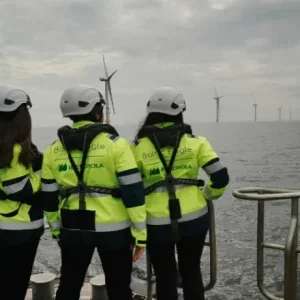EESG director and Carnegie Mellon electrical and computer engineering professor Marija Ilic said that they have developed a suite of computer models, decision-making tools and automation for efficient and reliable integration of wind and other sustainable energy sources.
"Embedding these tools in energy resources, system users and the power grid itself will enable cost-effective utilization of all assets and can help the economic health of islands worldwide," added Ilic.
The University stated that it has already collaborated with researchers at Portugal to develop a real-world database for electric power grids of Flores and San Miguel, two of nine volcanic islands in North Atlantic in Lisbon, Portugal.
Using this database, the team has modeled and assessed the potential of residential and commercial electricity users to participate in a load management program needed to make the most out of inexpensive, clean wind energy.
It has also simulated new automation concepts for reliable and stable electric power service using electric vehicles and better storage, including flywheels and evaluated their possible benefits.
The team demonstrated that fast automation can ensure stable operations of the power grid when there are large wind gusts that are hard to predict.






